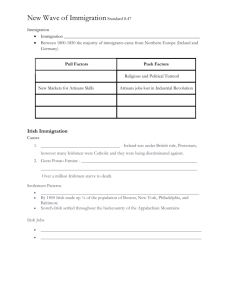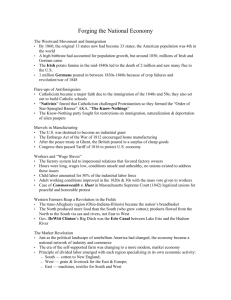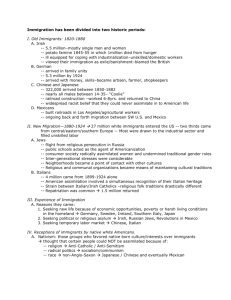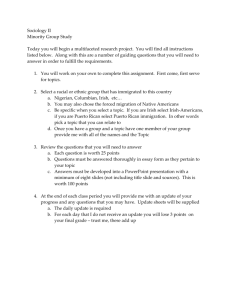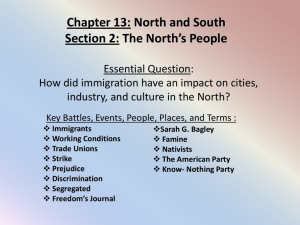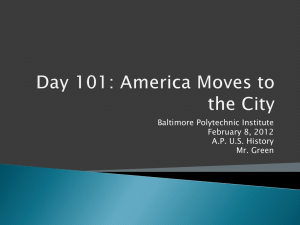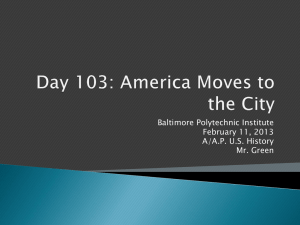immigration
advertisement
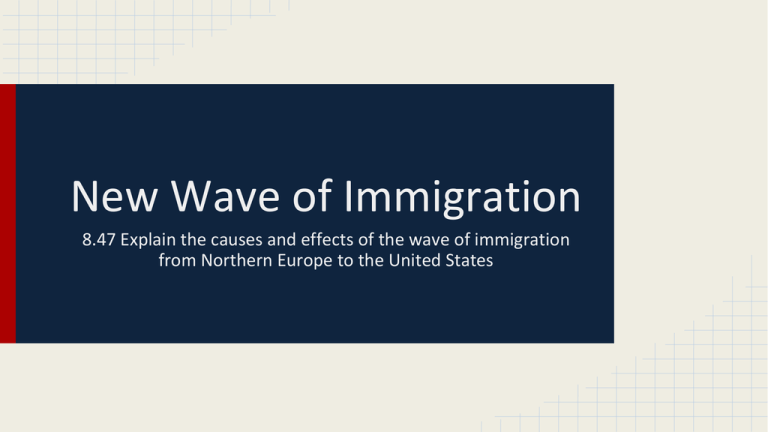
New Wave of Immigration 8.47 Explain the causes and effects of the wave of immigration from Northern Europe to the United States Immigration Immigration is the action of coming to live permanently in a foreign country. Between 1800-1850 the majority of immigrants came from Northern Europe (Ireland and Germany) Pull Factors Push Factors Tolerance and Freedom Religious and Political Turmoil New Markets for Artisans Skills Artisans jobs lost in Industrial Revolution Abundant and Affordable Land Overcrowding caused by population growth Opportunity to start over; healthy living Debt and hunger resulting from crop failures Irish Immigrants- Causes 1. Catholic v. Protestant - Ireland was under British rule, Protestant, however many Irishmen were Catholic and they were being discriminated against. 2. Great Potato Famine - a period of starvation in Ireland after a fungus destroy the potato crop, which was a staple for Irish meals. Over a million Irishmen starve to death. Irish Immigrants Settlement Patterns • Most settled in cities • By 1850 Irish made up ¼ of the population of Boston, New York, Philadelphia, and Baltimore • Scotch-Irish settled throughout the backcountry of the Appalachian Mountains Irish Jobs • Most were unskilled farmers • Took low paying difficult jobs German Immigrants Causes of Immigration • Failed Revolutions • Seeking economic opportunities Settlement Patterns • Most Settled in cities as well as on farms and the frontier • Wisconsin and Texas German Jobs • Bakers, Butchers, Carpenters, Printers, Tailors and Gunsmiths Impact on American Culture • Kindergartens, gymnasiums, the Christmas tree, and the hamburger Nativatist Nativatist were OPPOSED to immigration 1. feared immigrants would take jobs away from Americans because they were willing to do it for a lower wage 2. Religion- most of America was still Protestant and they disliked the Roman Catholics. More People More Problems The Industrial Revolution and Immigration lead to urbanization (growth of cities. more factories= more jobs= more people living near factories) • cities became over crowded, there was only one place to go, UP. building grew taller to accommodate • large building made of wood caused many fires (and deaths) • cities became very dirty because of the lack of sewage systems • unclean drinking water lead to disease
